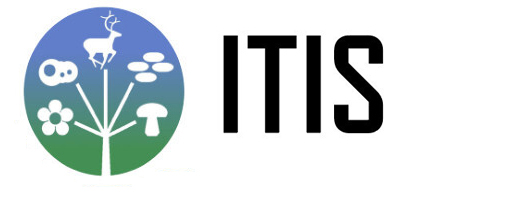| |
|
|
|
| |
Expert(s): |
|
|
| |
Expert: |
Alan P. Peterson, M.D.
|
|
| |
Notes: |
PO Box 1999 Walla Walla, Washington 99362-0999 |
|
| |
Reference for: |
Diglossa baritula |
|
| |
|
|
|
| |
Other Source(s):
|
|
|
| |
Source: |
AOU Check-List (07-2007), website (version Jul-2007)
|
|
| |
Acquired: |
2007 |
|
| |
Notes: |
American Ornithologists' Union's "List of the 2,046 Bird Species (With Scientific and English Names) Known From the A.O.U. Check-list Area" (AOU Check-list, 7th edition, updated with Supplements 42-48), maintained at http://www.aou.org/ |
|
| |
Reference for: |
Diglossa baritula, Cinnamon-bellied Flowerpiercer [English] |
|
| |
|
|
|
| |
Source: |
Comisión Nacional para el Conocimiento y Uso de la Biodiversidad, database (version undefined)
|
|
| |
Acquired: |
2001 |
|
| |
Notes: |
CONABIO: (http://www.conabio.gob.mx/) |
|
| |
Reference for: |
Picaflor canelo[Spanish] |
|
| |
|
|
|
| |
Source: |
eBird/Clements Checklist (2021), database (version 2021)
|
|
| |
Acquired: |
2021 |
|
| |
Notes: |
Clements, J. F., T. S. Schulenberg, M. J. Iliff, S. M. Billerman, T. A. Fredericks, J. A. Gerbracht, D. Lepage, B. L. Sullivan, and C. L. Wood. 2021. The eBird/Clements checklist of Birds of the World: v2021. Downloaded from https://www.birds.cornell.edu/clementschecklist/download/ |
|
| |
Reference for: |
Diglossa baritula |
|
| |
|
|
|
| |
Source: |
Gill & Wright (2006) corrigenda/updates - 21-Sep-2007, website (version 1.1)
|
|
| |
Acquired: |
2007 |
|
| |
Notes: |
Corrigenda & updates for "BIRDS OF THE WORLD Recommended English Names" available at http://www.worldbirdnames.org/ |
|
| |
Reference for: |
Diglossa baritula, Cinnamon-bellied Flowerpiercer [English] |
|
| |
|
|
|
| |
Source: |
HBW and BirdLife Int. v.5 (2020), database (version 5)
|
|
| |
Acquired: |
2021 |
|
| |
Notes: |
HBW and BirdLife International (2020) Handbook of the Birds of the World and BirdLife International digital checklist of the birds of the world. Version 5. Available at: http://datazone.birdlife.org/userfiles/file/Species/Taxonomy/HBW-BirdLife_Checklist_v5_Dec20.zip |
|
| |
Reference for: |
Diglossa baritula |
|
| |
|
|
|
| |
Source: |
IOC World Bird List (v 5.3), website (version 5.3)
|
|
| |
Acquired: |
2015 |
|
| |
Notes: |
Gill, F., and D. Donsker, eds. 2015. IOC World Bird List (v 5.3). Available at http://www.worldbirdnames.org [Accessed 04 September, 2015] |
|
| |
Reference for: |
Diglossa baritula, Cinnamon-bellied Flowerpiercer [English] |
|
| |
|
|
|
| |
Source: |
IOC World Bird List (version 12.1), website (version 12.1)
|
|
| |
Acquired: |
2022 |
|
| |
Notes: |
Gill, F., D. Donsker, and P. Rasmussen, eds. 2022. IOC World Bird List (v 12.1). doi: 10.14344/IOC.ML.12.1. Available at http://www.worldbirdnames.org [Accessed 21 Jan, 2022] |
|
| |
Reference for: |
Diglossa baritula, Cinnamon-bellied Flowerpiercer [English], Percefleur cannelle [French], Pinchaflor ventricanelo [Spanish] |
|
| |
|
|
|
| |
Source: |
Zoonomen - Zoological Nomenclature Resource, 2015.02.01, website (version 01-Feb-15)
|
|
| |
Acquired: |
2015 |
|
| |
Notes: |
'Zoonomen Nomenclatural data' maintained by Alan P. Peterson at http://www.zoonomen.net |
|
| |
Reference for: |
Diglossa baritula |
|
| |
|
|
|
| |
Publication(s):
|
|
|
| |
Author(s)/Editor(s): |
Dickinson, E. C., and L. Christidis, eds.
|
|
| |
Publication Date: |
2014 |
|
| |
Article/Chapter Title: |
|
|
| |
Journal/Book Name, Vol. No.: |
The Howard and Moore Complete Checklist of the Birds of the World, 4th Edition, Vol. 2 Passerines |
|
| |
Page(s): |
lii + 752 |
|
| |
Publisher: |
Aves Press |
|
| |
Publication Place: |
Eastbourne, UK |
|
| |
ISBN/ISSN: |
9780956861122 |
|
| |
Notes: |
|
|
| |
Reference for: |
Diglossa baritula, Cinnamon-bellied Flowerpiercer [English] |
|
| |
|
|
|
| |
Author(s)/Editor(s): |
Gill, Frank, and Minturn Wright
|
|
| |
Publication Date: |
2006 |
|
| |
Article/Chapter Title: |
|
|
| |
Journal/Book Name, Vol. No.: |
Birds of the World: Recommended English Names |
|
| |
Page(s): |
ix + 259 |
|
| |
Publisher: |
Princeton University Press |
|
| |
Publication Place: |
Princeton, New Jersey, USA |
|
| |
ISBN/ISSN: |
0-691-12827-8 |
|
| |
Notes: |
Includes a CD-ROM with the full dataset |
|
| |
Reference for: |
Diglossa baritula, Cinnamon-bellied Flowerpiercer [English] |
|
| |
|
|
|

